Typically, the best ultrabooks don't rock the boat too much. They might have lighter designs than previous years or improve performance with new chips. But the Lenovo ThinkBook Plus Gen 6 Rollable is a unique device, with a rolling screen that turns a “short” 14-inch display into a very tall 16-inch diagonal experience.
It's the type of device you would expect to see shown off at a trade show like CES (where it debuted) and then never seen again — except that for $3,299.99, you can actually own it.
Design of the Lenovo ThinkBook Plus Gen 6 Rollable
Out of the box, the ThinkBook looks like a pretty standard (if not dull) laptop, with a two-toned silver design. The screen has some odd bezels, wider on the sides than on the top and the bottom. The power button, which also features the fingerprint reader, is on the right side.
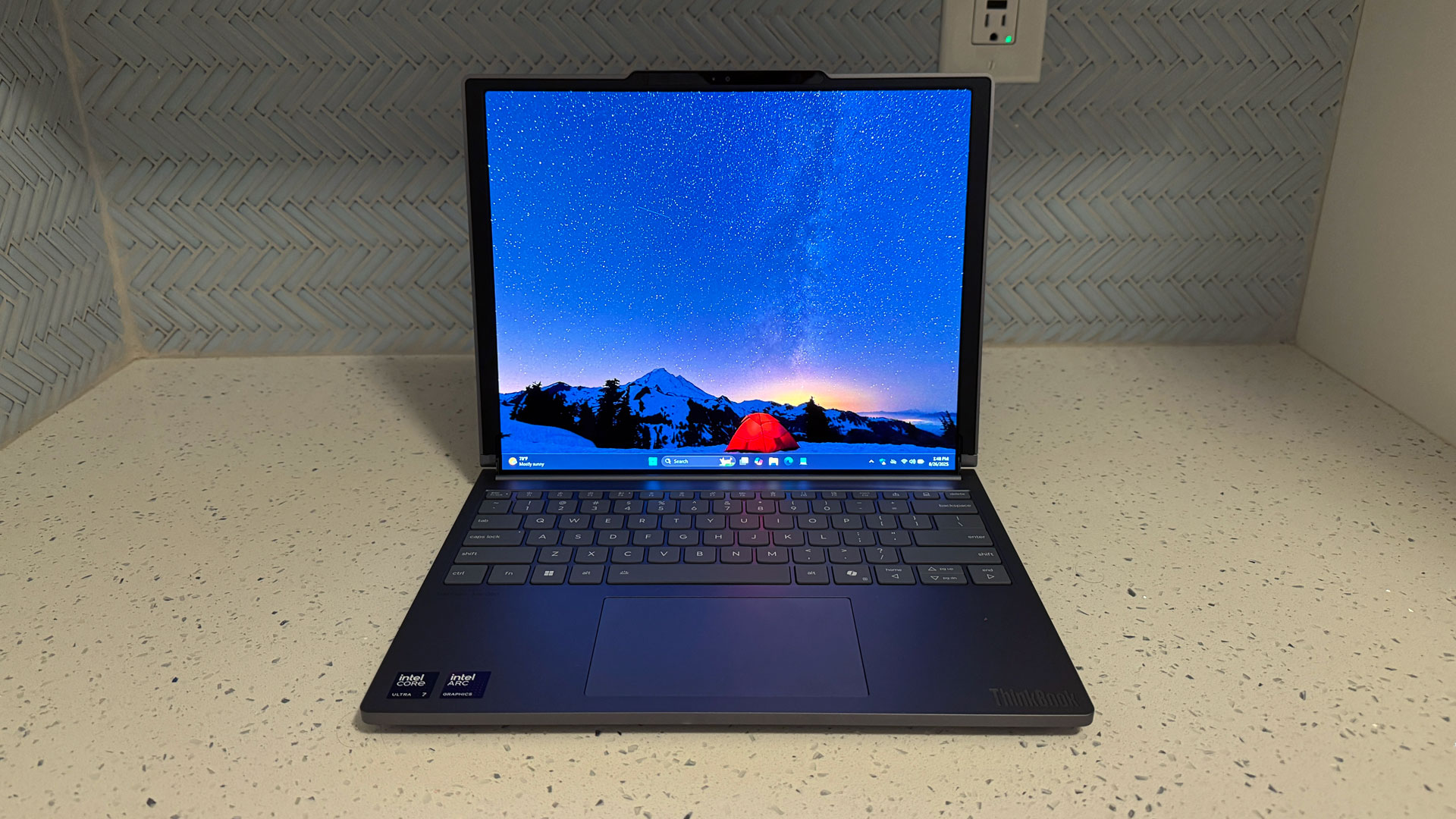
The aluminum deck is sturdy and features a backlit keyboard. The left side of the notebook features the laptop’s sole trio of ports: a pair of Thunderbolt 4/USB Type-C ports and a headphone jack. That's not a lot of ports for any laptop, especially one seemingly meant for productivity, but I suppose something had to go in order to make room for the display.
The laptop is 11.95 x 9.08 x 0.78 inches and weighs 3.72 pounds, which is hefty for a 14-inch PC. But this laptop is also a 16-inch PC, thanks to its rollable display, which makes the ThinkBook far more interesting than it looks at first.
The system comes with a 65W GaN charger. It's rare the charger gets a mention in our reviews, but it's great to see the latest charger technology, including a removable USB Type-C cable, in a premium machine. Other laptop vendors should do this more often, and Lenovo should bring it to more of its own machines.
Display on the Lenovo ThinkBook Plus Gen 6 Rollable
With the ThinkBook's screen rolled up, you get a 14-inch, 2000 x 1600 screen with a 5:4 aspect ratio. Unrolled, you get a far taller display, measuring 16.7 inches diagonally with a resolution of 2000 x 2350 and an 8:9 aspect ratio. The screen is a POLED (plastic OLED) display with a 120 Hz refresh rate.
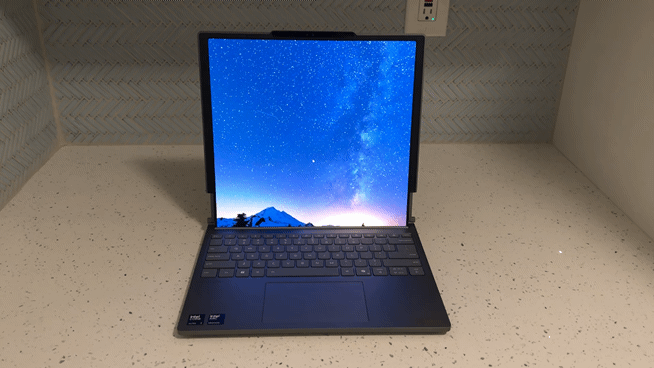
To let the screen unroll, you push a button on the keyboard. And the first time you try it, it feels absolutely awesome. Unfolding a foldable the first time feels futuristic. Having a motor do it for you feels magical.
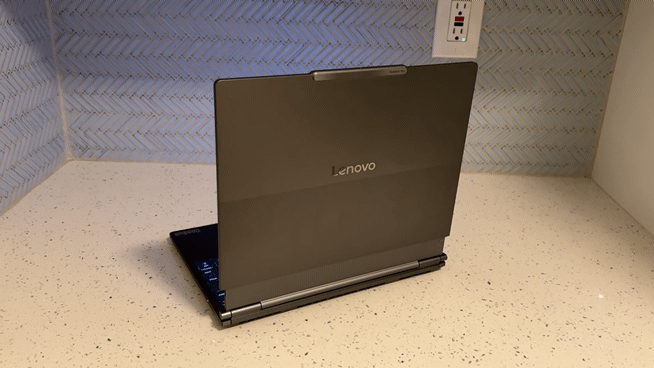
The motor isn't terribly loud, but it does take time to roll and unroll — about 9 seconds from button press to full extension or contraction. I'd like to see that cut in half, though I don't know what that would do to durability. When Lenovo announced the laptop at CES, it claimed 30,000 hinge openings and closings and 20,000 screen rolls up and down. That's a lot of rolls and openings, but it's also a number you basically never have to think about with a traditional laptop design.
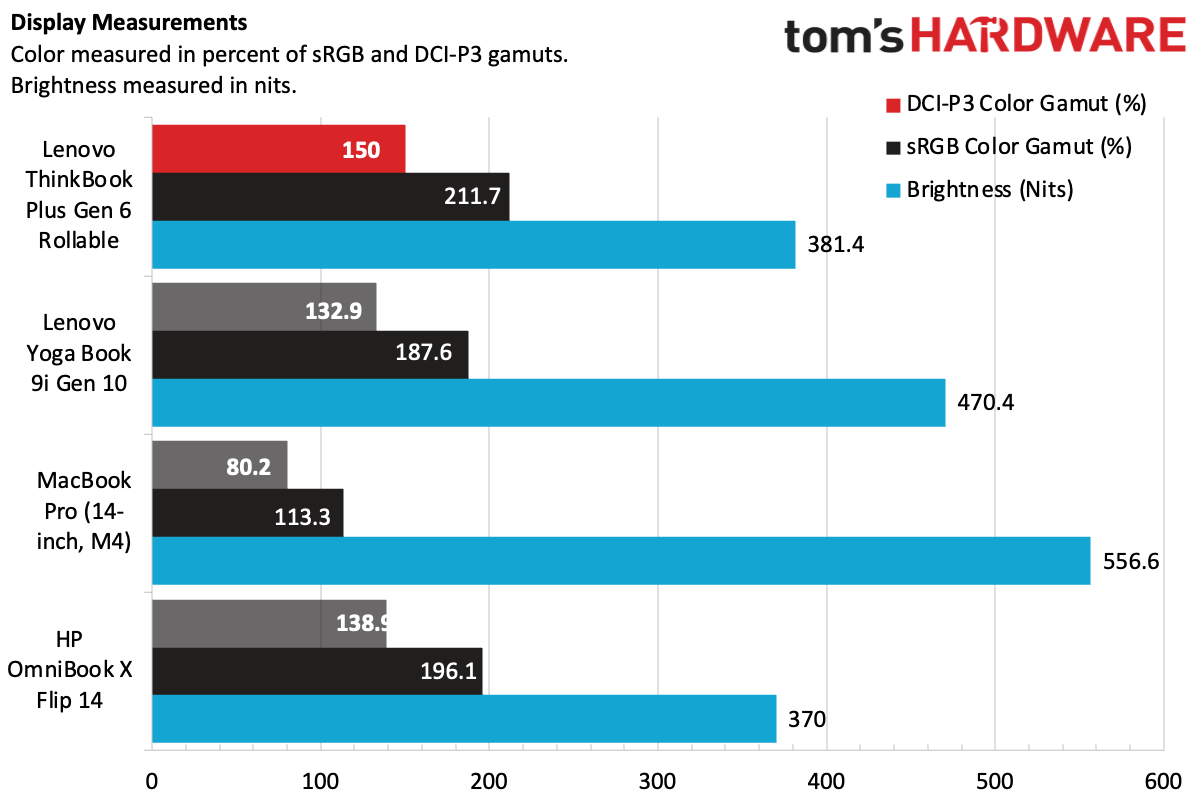
The plastic OLED screen looks really nice, and performs pretty well, too. The screen measured 150% of DCI-P3 coverage by volume, and 211.7% of SRGB, easily surpassing the Yoga Book 9i Gen 10's impressive dual panels. At 381.4 nits of brightness, however, it falls behind the Yoga Book and the MacBook Pro.
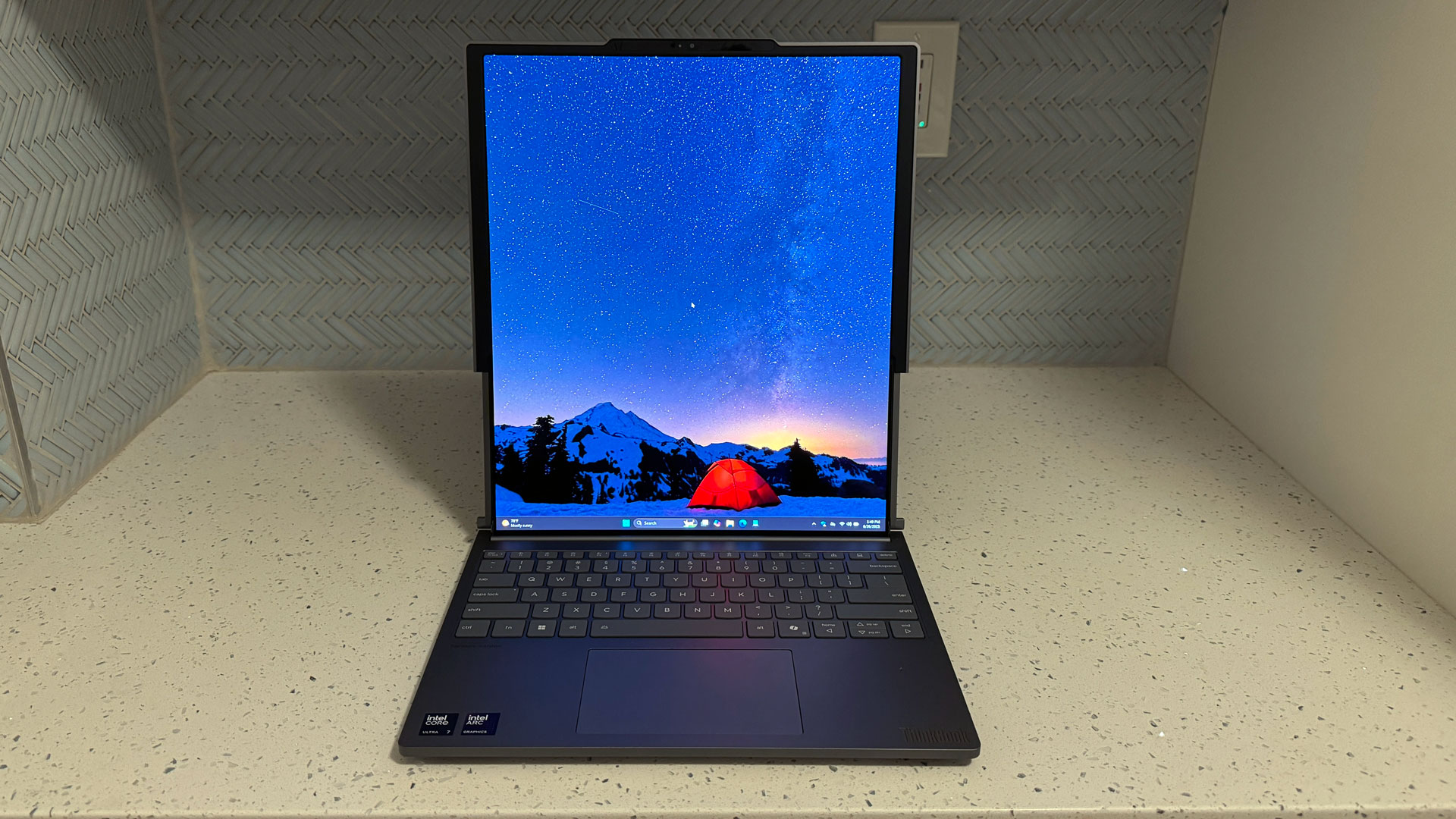
The thing is, though, it's not really great for multimedia. Even at 14-inches, the trailer for Superman had thick black bars on the top and bottom. Those increased to obscene amounts with the taller 16-inch screen unrolled.
What these aspect ratios do allow for is strong multitasking. Having the homepage of New York Magazine or Tom's Hardware showed an almost overwhelming amount of text. But with the screen extended, I could use the top half for a Google Doc while using the bottom of the screen to keep an eye on Slack, or have the Tom's Hardware's morning meeting up at the top of the screen while still getting some work done on the bottom. And there are uses for tall displays; some coders love a desktop display turned vertical to show more text. This does that in a laptop.
I even used it to try playing Ikragua, an old bullet-hell game designed to be played vertically. Unfortunately, in much of my gaming, parts of the game were cut off despite the fact that it should have fit on the screen. This is no gaming device, simply because of that issue. Of course, it also doesn’t have dedicated graphics.
And for all its impressive unfurling, there are limitations to the screen. For one, it's not a touchscreen, despite the many foldables that use similar technology, all featuring touch capabilities. I don't feel that all clamshell laptops inherently need touchscreens, but there's something about a screen this tall that feels like it invites it.
Additionally, the hinge only goes just past a 90-degree angle. This seemingly supports the display and rolling mechanism, ensuring it rolls and unrolls at ideal angles, but it feels quite limiting. It's not good for lying back on the couch with the system in your lap. (The system also can tell if you have the angle below 90 degrees and won't make adjustments.)
You have to be careful with the screen. If you attempt to shut the laptop with the 16-inch display unrolled, you'll be greeted with a faint but annoying alarm until you open the system again.
You also can't change the resolution or screen orientation in Windows 11 on this laptop. While I doubt many people would actually change it, it's surprising to get a pop-up that says "The current model does not support resolution adjustment" as Windows reverts to the native resolution whether you tell it to or not. (You can still change scaling, though Lenovo warns it could cause problems with the ThinkBook Workspace app).
The other issue is that at certain angles, you can see where the screen bends to fit in the laptop. This isn't terribly different from the way you can sometimes see the crease on foldable phones, but it doesn't feel terribly premium.
Besides pushing the button on the keyboard, Lenovo has an opt-in feature that lets you use your hand and the time-of-flight sensor to raise and lower the screen. It sounds like a magic trick, but in practice it's extremely finicky. You need your hand in the perfect spot, then the sensor needs to recognize your hand, and only then do you move it up or down. The keyboard button, on the other hand, is foolproof.
Lenovo ThinkBook Plus Gen 6 Specifications
Swipe to scroll horizontally
CPU | Intel Core Ultra 7 258V |
Graphics | Intel Arc 140V GPU (integrated) |
Memory | 32GB LPDDR5x-8533, soldered |
Storage | 1 TB PCIe M.2 2242 SSD |
Display | POLED (Plastic OLED), 120 Hz Rolled: 14-inch, 2000 x 1600, 5:4 Unrolled: 16.7-inch, 2000 x 2350, 8:9 |
Networking | Intel Wi-Fi 7 BE201, Bluetooth 5.4 |
Ports | 2x Thunderbolt 4 over USB Type-C, 3.5 mm head jack |
Camera | 5MP, infrared, Time-of-Flight Sensor, e-shutter |
Battery | 66 WHr |
Power Adapter | 65 WHr GaN USB-C charger |
Operating System | Windows 11 Pro |
Dimensions (WxDxH) | 11.95 x 9.08 x 0.78 inches (303.5 x 230.6 x 19.9 mm) |
Weight | 3.72 pounds (1.69 kg) |
Price (as configured) | $3,299.99 |
Productivity Performance on the Lenovo ThinkBook Plus Gen 6 Rollable
There's only one configuration of the ThinkBook Plus Gen 6 Rollable. The fancy screen is backed by an Intel Core Ultra 7 258V processor, 32GB of RAM and a 1TB SSD. If you're buying this, it's mostly for the display.
The bump to 32GB of RAM is nice, but otherwise the specs are all pretty similar to what you can get in cheaper ultraportables. This price can get you a big, gaming-ready GPUs. With this laptop, you’re getting ultrabook internals and an innovative screen, and you’ll have to live with integrated graphics.
Here, we're comparing the ThinkBook Plus to Lenovo's own
Yoga Book 9i(Intel Core Ultra 7 255H), with dual screens that also lets you work tall, as well as the
14-inch MacBook Proand
HP OmniBook X Flip 14, both of which are more typical laptops with Apple's M4 and AMD's Ryzen AI 7 350, respectively, and cost far less.
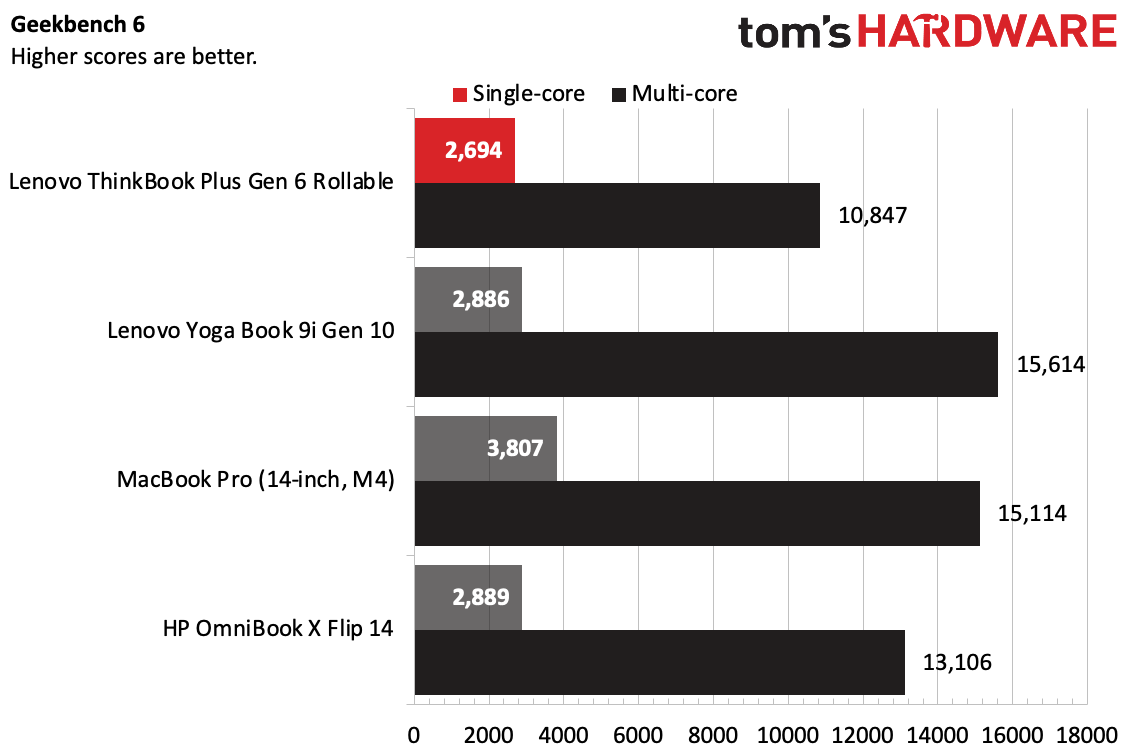
On Geekbench 6, the Rollable earned a single-core score of 2,694 and a multi-core score of 10,847 – the lowest of the bunch, including Lenovo's dual-screen foldable, which uses an H-series chip.
The Rollable copied 25GB of files at a rate of 1,075.92 MBps, just about in line with the Yoga Book, though the HP OmniBook was far faster.
It took the Rollable 7 minutes and 13 seconds to transcode a
4Kvideo to
1080p, more than 2 minutes slower than the OmniBook (the M4 won here at 4:27).
We stress-tested the system using Cinebench 2024. The PC was largely stable, with scores settling in the high 490s, without signs of throttling. The CPU's P-cores averaged 2.62 GHz during this test, while the E-cores measured 2.99 GHz.
Keyboard and Touchpad on the Lenovo ThinkBook Plus Gen 6 Rollable
The Rollable's scallop-shaped keys are great to type on. While I've seen some snappier keys on some of Lenovo's ThinkPad lineup, this keyboard was comfortable and balanced, letting me hit 110 words per minute on the monkeytype typing test with my standard 2% error rate.
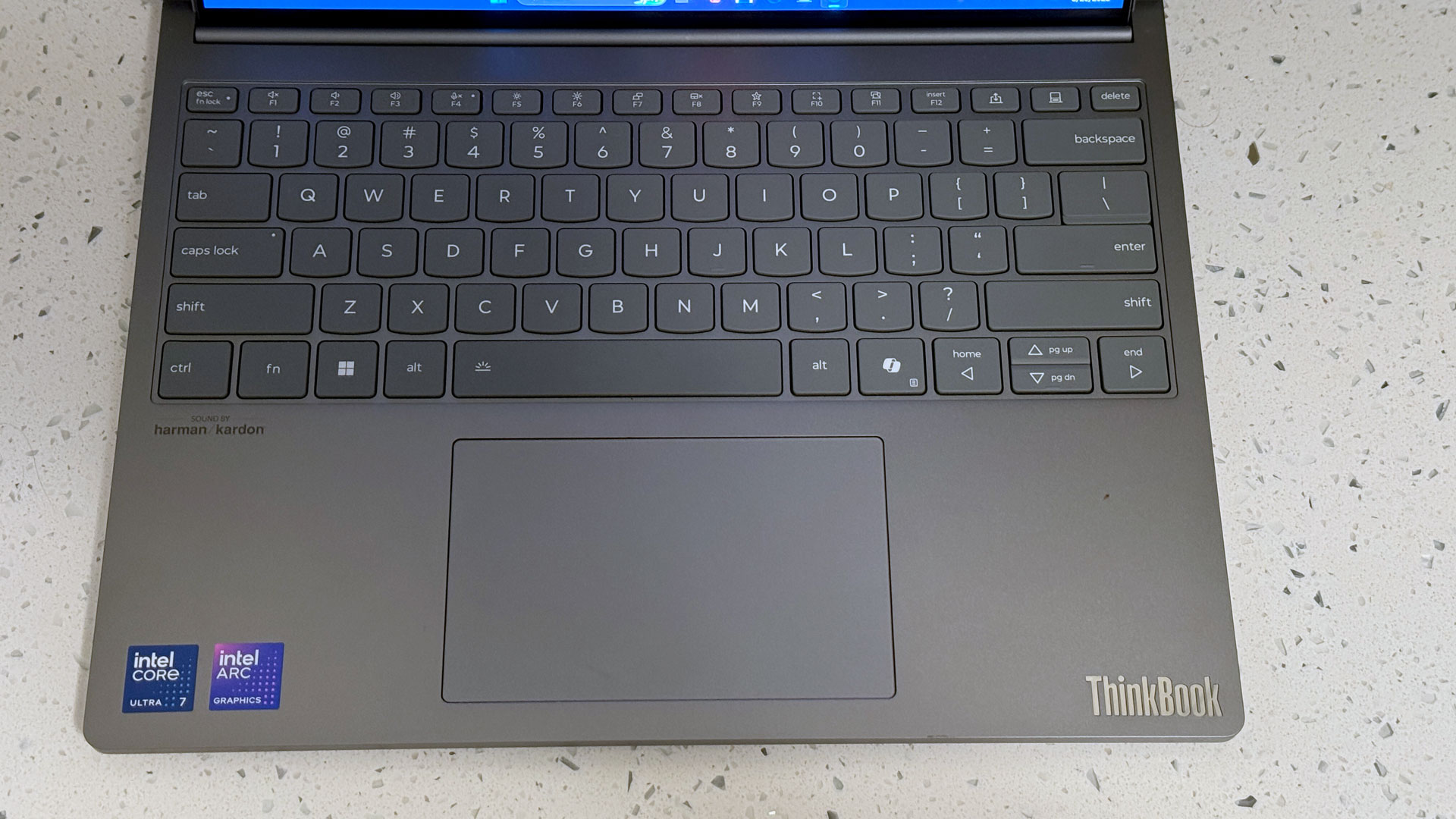
I have no complaints about the haptic touchpad — a computer with a rolling screen doesn't need more moving parts. It's responsive to gestures and to clicks.
Audio on the Lenovo ThinkBook Plus Gen 6 Rollable
Maybe it's the extra bit of thickness the ThinkBook Plus Gen 6 needs to fit a screen, but it also allows for surprisingly powerful speakers in an ultrabook. As I worked, Linkin Park's "Two Faced" screamed through my apartment with clear vocals, clashing drums, strong guitars, and even a hint of bass on the low end. You rarely find that on a business machine.
The song's rapping and yelling were prioritized over sung vocals, but a quick change to the "balanced" mode in Dolby Access helped account for that, though it did lessen the bass.
Upgradeability of the Lenovo ThinkBook Plus Gen 6 Rollable
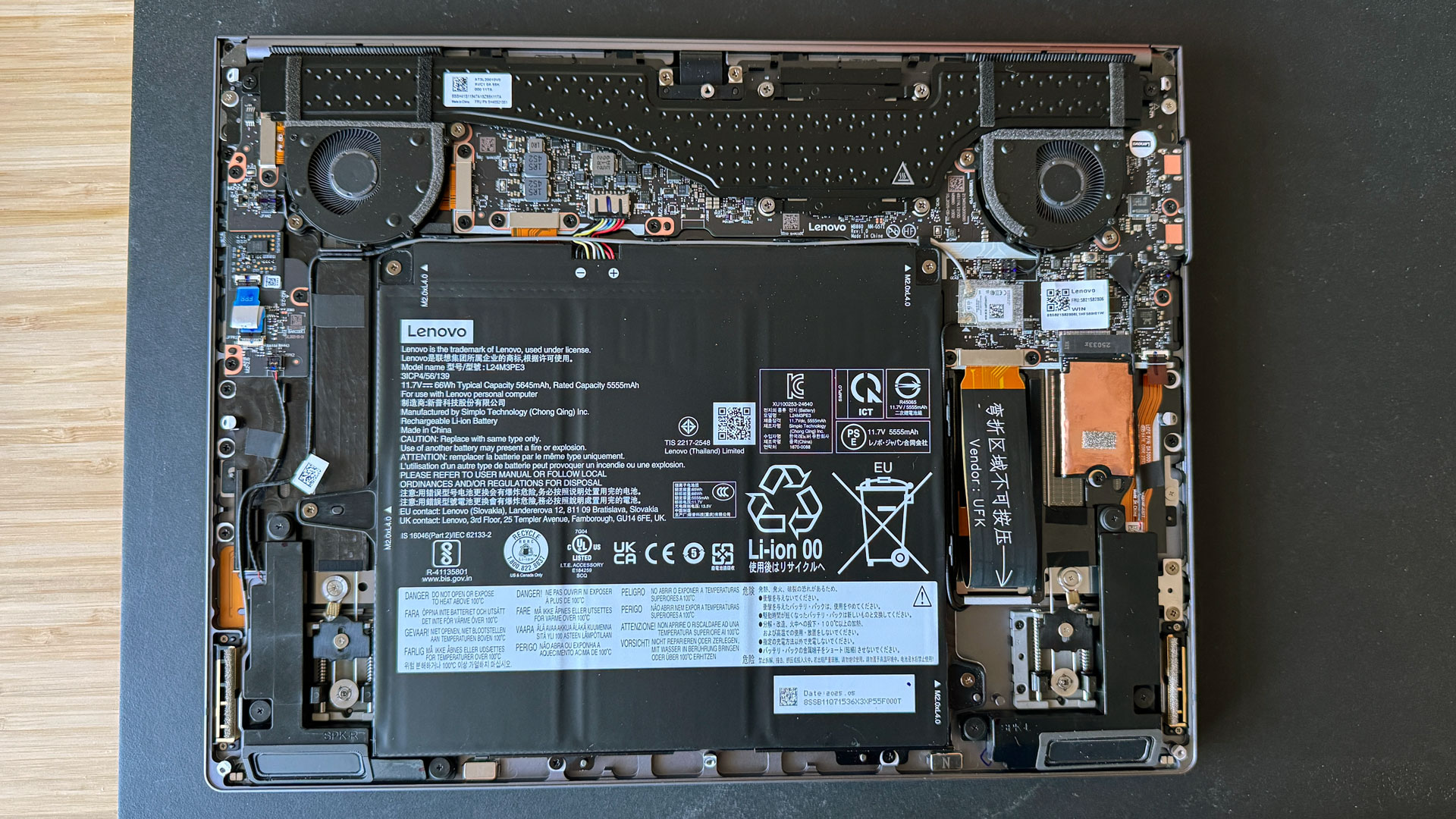
Given the complexity of this device, I was shocked that there were any user-replaceable parts.
The base of the notebook is held on with eight Torx screws (a T5 bit fits just right). Removing them, I was able to pull the bottom off from a well-placed space near the chassis’ palm rest.
The inside of the system is packed around the surprisingly wide 66 WHr battery. That cell is removable, though Lenovo recommends disconnecting the Wi-Fi antenna before taking it out, as the cables go right around the top of it (and over the ones that connect the battery to the motherboard). The SSD is also user-replaceable if you want to add more storage. The RAM is soldered.
Be careful while working inside this system, though. You can see some of the springs and rails that power the motorized display. I'd hate to lose a screw in there.
Battery Life on the Lenovo ThinkBook Plus Gen 6 Rollable
An extra two inches of screen real estate (and the accompanying pixels) affects battery life. Rolled up to 14 inches, the ThinkBook ran for 9 hours and 28 minutes on our battery test, which includes web browsing, light WebGL testing, and video streaming with the screen set to 150 nits. With the screen unrolled out to 16 inches it ran for 8:43.
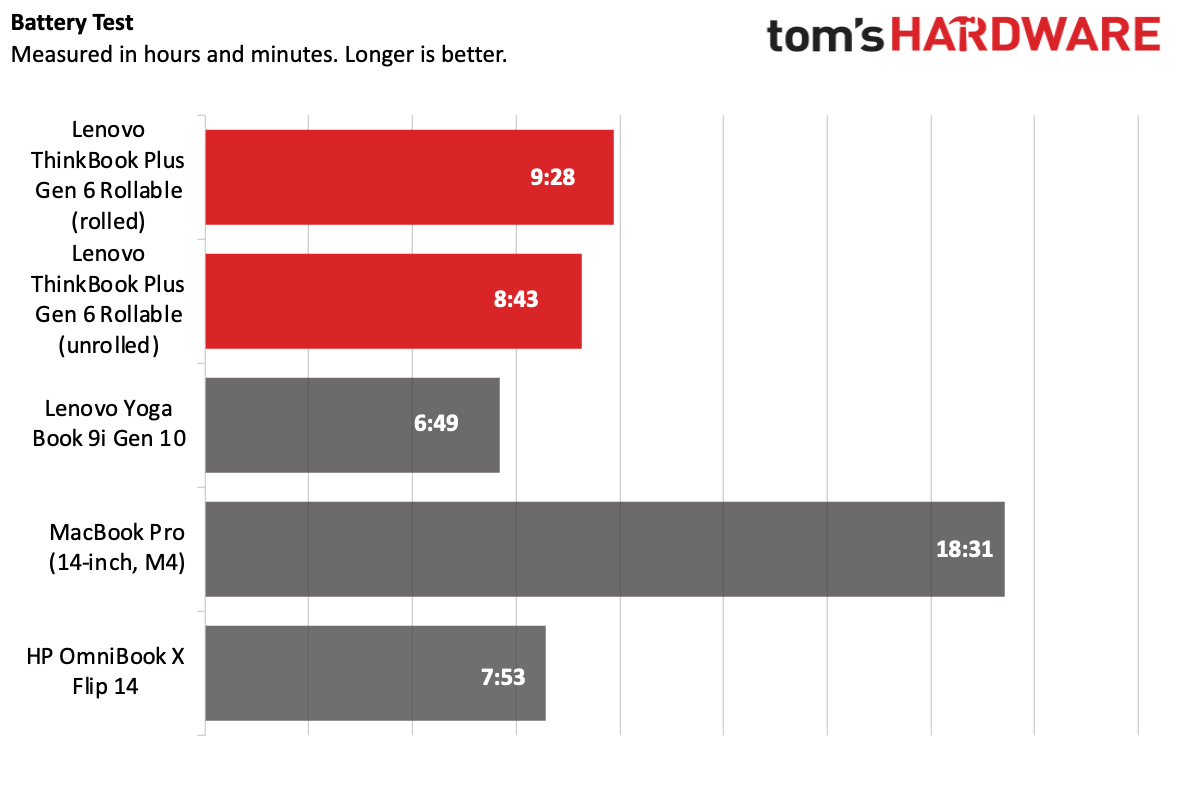
Both are longer than the Lenovo Yoga Book 9i Gen 10, with two screens, and the HP OmniBook X Flip 14, a convertible with one display. Apple's M4 and a mini-LED display, however, won out by far at 18 hours and 31 minutes.
Heat on the Lenovo ThinkBook Plus Gen 6 Rollable
To measure skin temperatures under load, we took heat readings while running our Cinebench 2024 stress test. The center of the keyboard measured 98 degrees Fahrenheit, while the touchpad was cooler at 92.3 F. The hottest point on the bottom of the notebook was near a vent at 113.5 F.
Internally, the CPU measured an average of 70.01 degrees Celsius during the same test.
Webcam on the Lenovo ThinkBook Plus Gen 6 Rollable
The webcam on the ThinkBook Plus Gen 6, despite having a 5MP lens, is just OK. In video calls, I saw some grainy artifacts despite the high-resolution image.
But the tall screen on the ThinkBook Plus Gen 6 Rollable adds a benefit: making it very easy to look at the camera. The angle changes slightly between 14 and 16-inch modes, but with the screen unrolled, you can look right at the camera.
The webcam features a shutter switch directly on top of the camera bump. I'd prefer a button on the keyboard, but this works fine.
Software and Warranty on the Lenovo ThinkBook Plus Gen 6 Rollable
Lenovo has several pieces of software designed specifically for the rollable, though I'll be frank — I don't think any of them are strictly necessary.
The big one is ThinkBook Workspace, which lets you add mini apps like your reminders, to-do-list, and calendar from your Microsoft account. The app also features a user guide, an awkward secondary virtual display, and access to Smart Copy, a clipboard manager. You can also pin your own apps to Workspace's thick title bar. Personally, I preferred using Windows 11's Snap Layouts to put apps where I wanted them on the screen. One of the first things I did with Workspace was prevent it from launching every single time I extended the screen (there's an easy enough keyboard button for it).
ThinkBook Workspace has a ton of buried settings, many of them turned off by default. If you want a fun animation to play while you extend the screen (which I wouldn't recommend, as it covers your work), or to try enabling the feature to raise the screen with your hand, you'll have to dig.
There's also Lenovo AI Now, a local AI app that lets you feed documents into your "personal knowledge base" to find or easily digest information without using the cloud. Lenovo requires an account for this app, which is a shame, since the point of it is that it uses local computing.
Just like Lenovo's other devices, Vantage is on board for warranty information, easy access to your serial number, battery, and device settings, system updates, and an advertisement for McAfee Secure VPN.
There's also Lenovo Smart Meeting, which makes adjustments to your camera, background, or replaces you with a temporary avatar if you have to leave a meeting. There's also Smart Connect to add Lenovo or Motorola phones and tablets to your PC. Lenovo Now attempts to foist upsells and partner offers on you, and I think for a $3,300 laptop, you shouldn't have to deal with that.
Lenovo sells the ThinkBook Plus Gen 6 with a one-year courier or carry-in warranty, which can be increased for a longer duration or to include more services for additional charges.
Bottom Line
When my colleagues and I see futuristic concepts at trade shows like CES, they tend to stay concepts. But Lenovo made the ThinkBook Plus Gen 6 Rollable real, and it's by far the most interesting laptop I've reviewed in a long time.
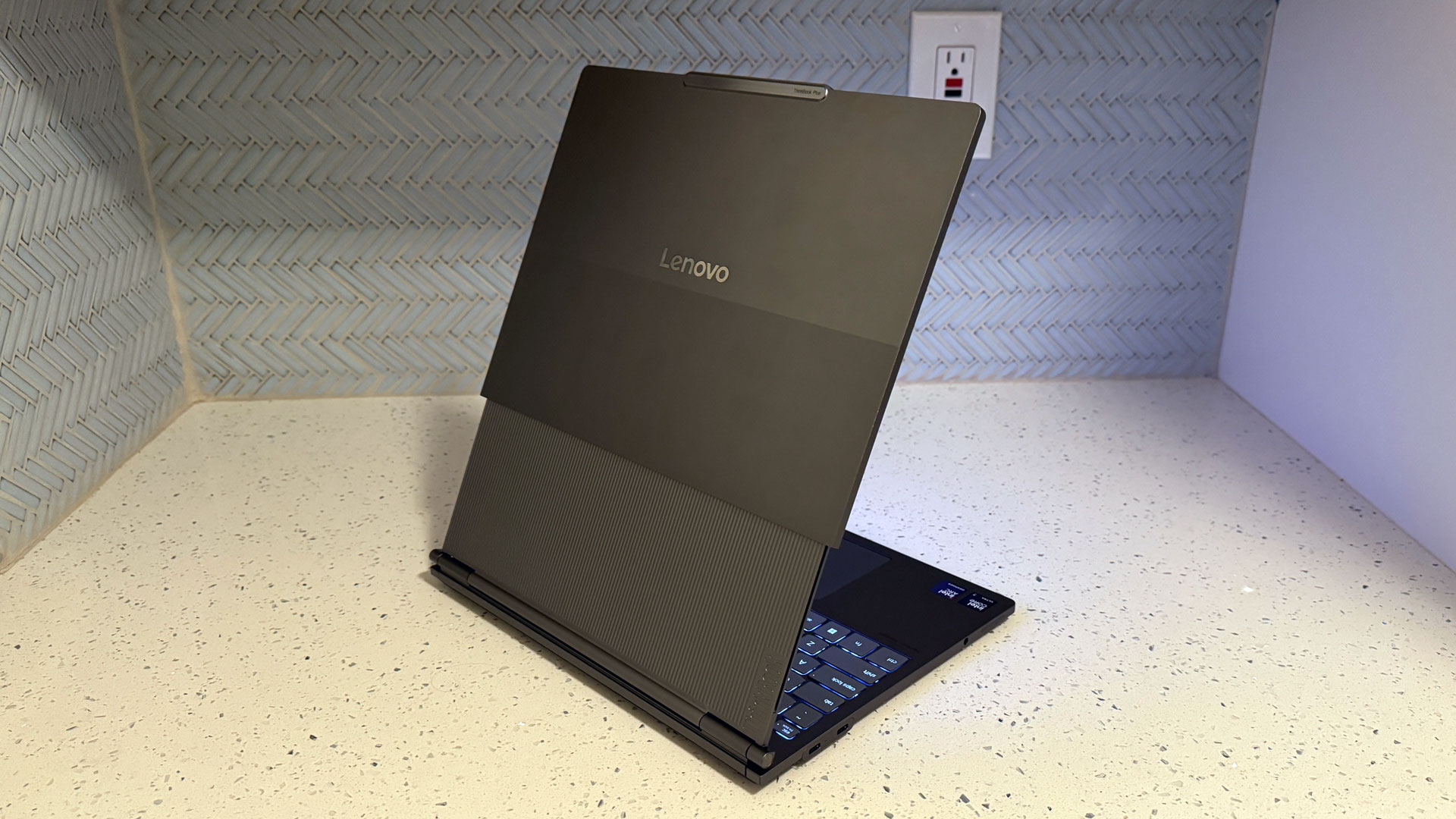
It's a good enough performer for typical productivity tasks like writing, spreadsheets, video conferencing, and basic coding. But with the $3,299.99 price tag, you're really paying for that rolling screen and all of the engineering behind it.
In truth, there's nothing like it. Perhaps the closest options – the initial slate of foldable laptops that included the Lenovo ThinkPad X1 Fold 16 – are either no longer available or are several generations of chips behind. This device also offers a traditional laptop keyboard and touchpad, unlike the more powerful Yoga Book 9i with dual screens.
You could buy any number of traditional laptops with similar specs and add in one of the
best portable monitorson top of it for a lot less money. But if you're OK with more moving parts in your laptop and you want more screen when you need it, the ThinkBook Plus Gen 6 Rollable sure is easier to carry. If that’s worth the considerable extra expense (and extra weight) for you, then the ThinkBook Plus Gen 6 Rollable is worth considering.

 2 months ago
67
2 months ago
67
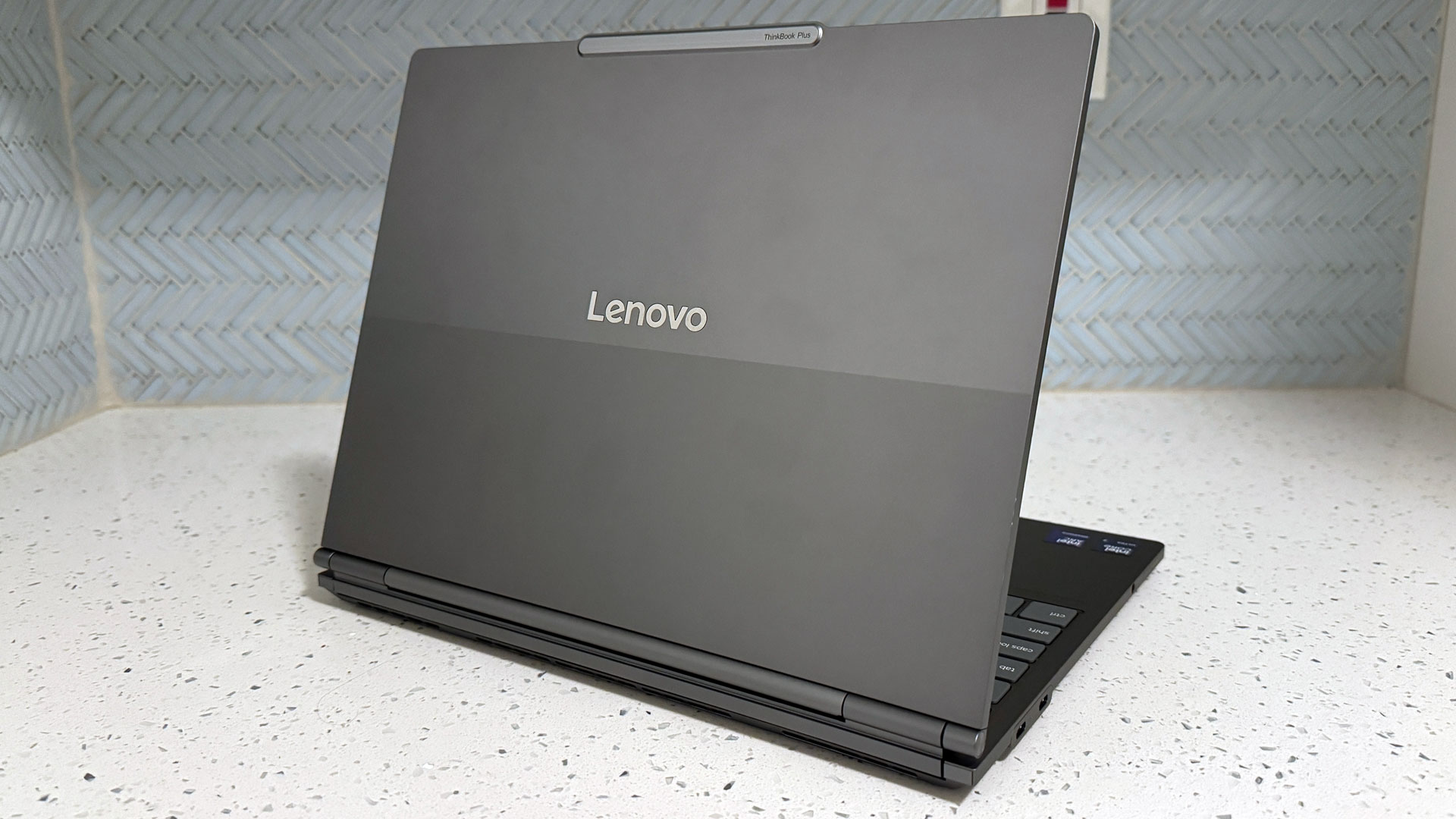
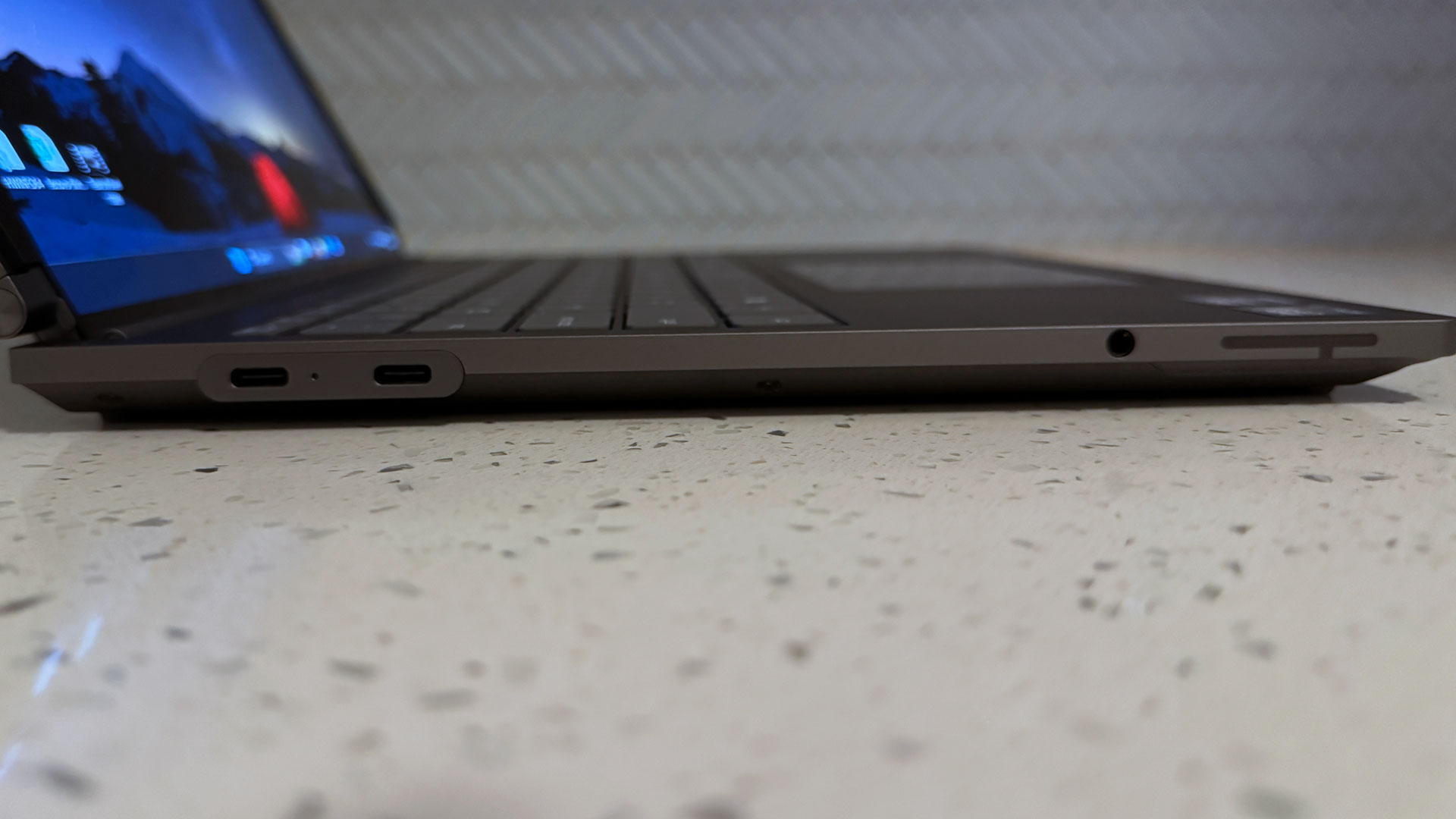
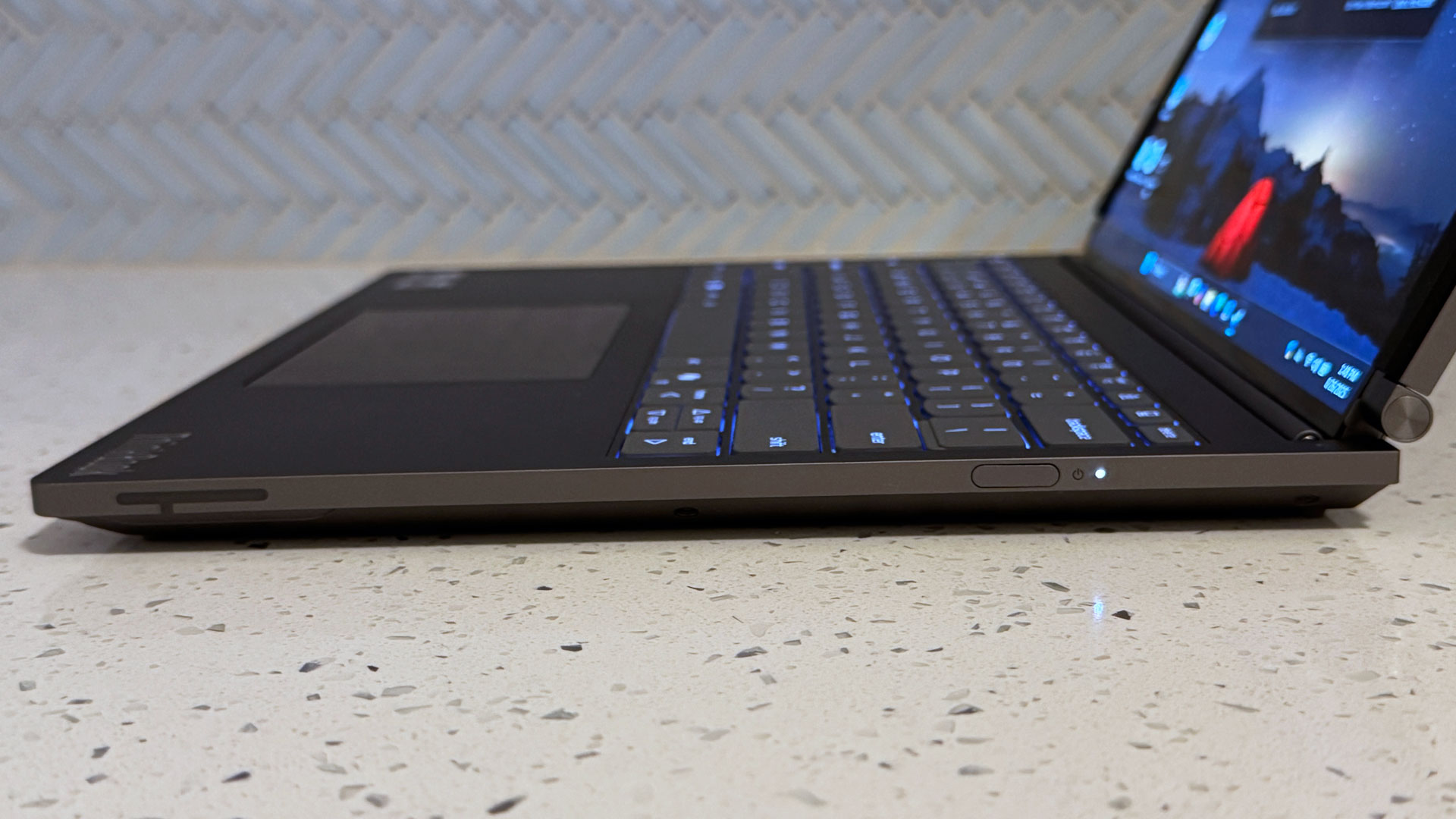
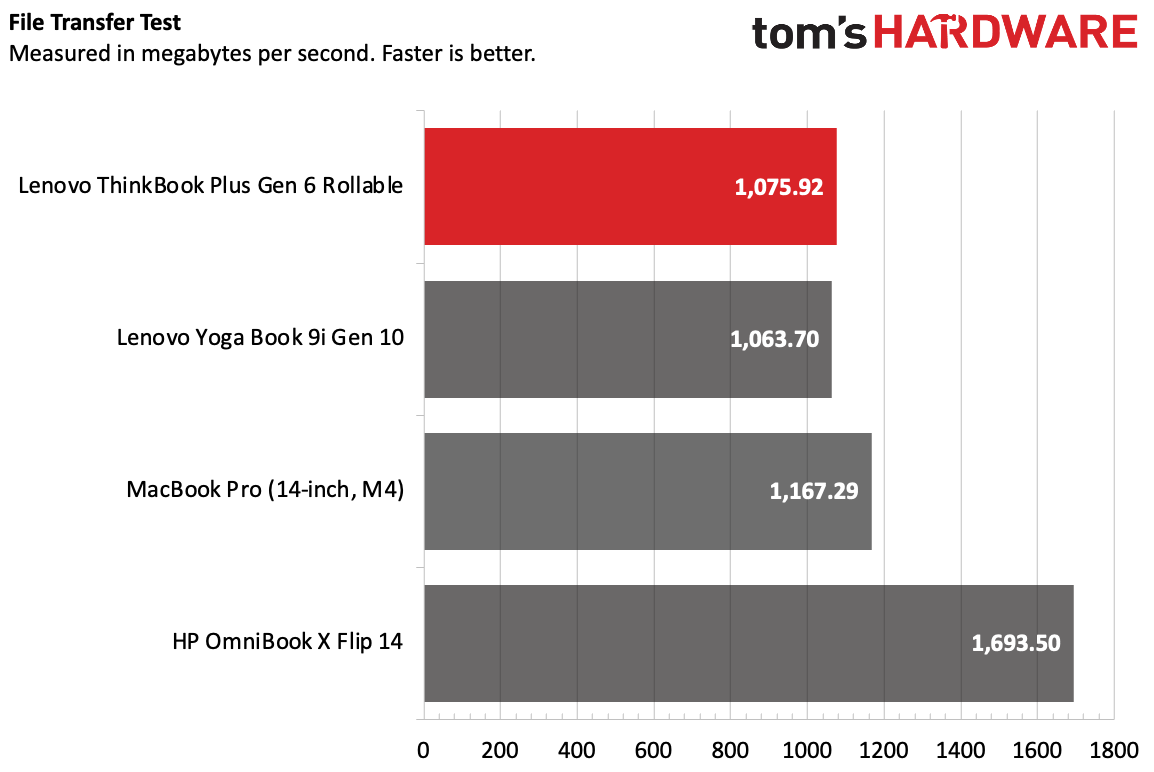
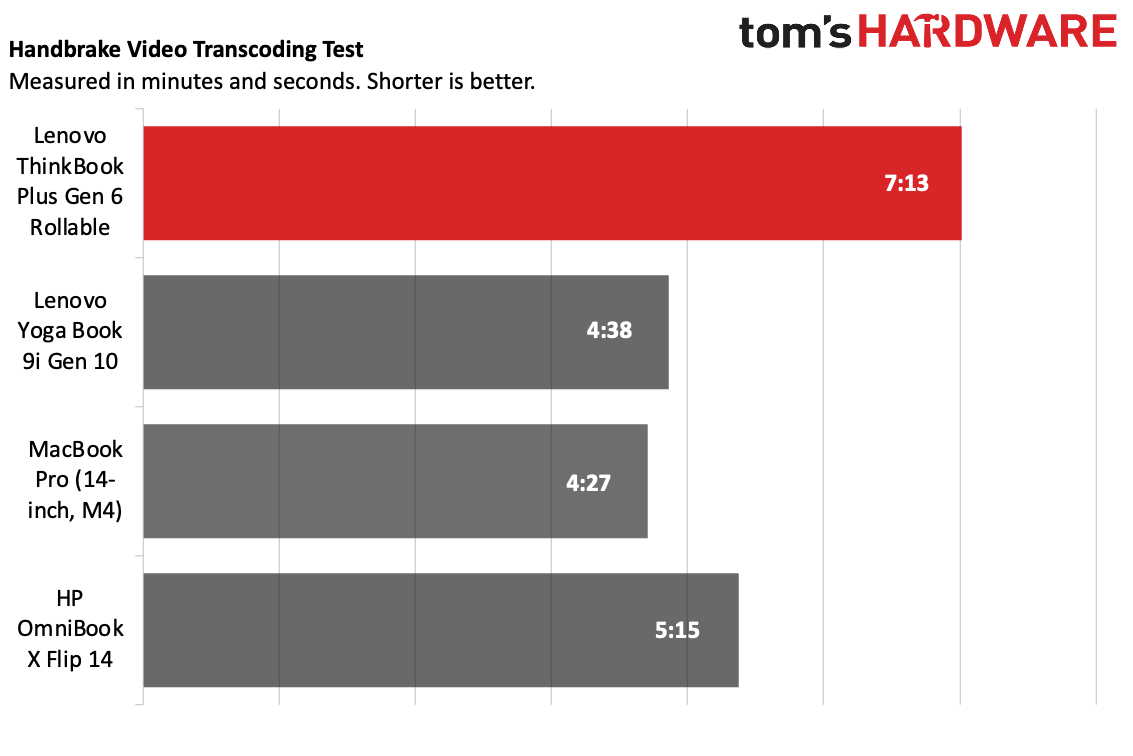
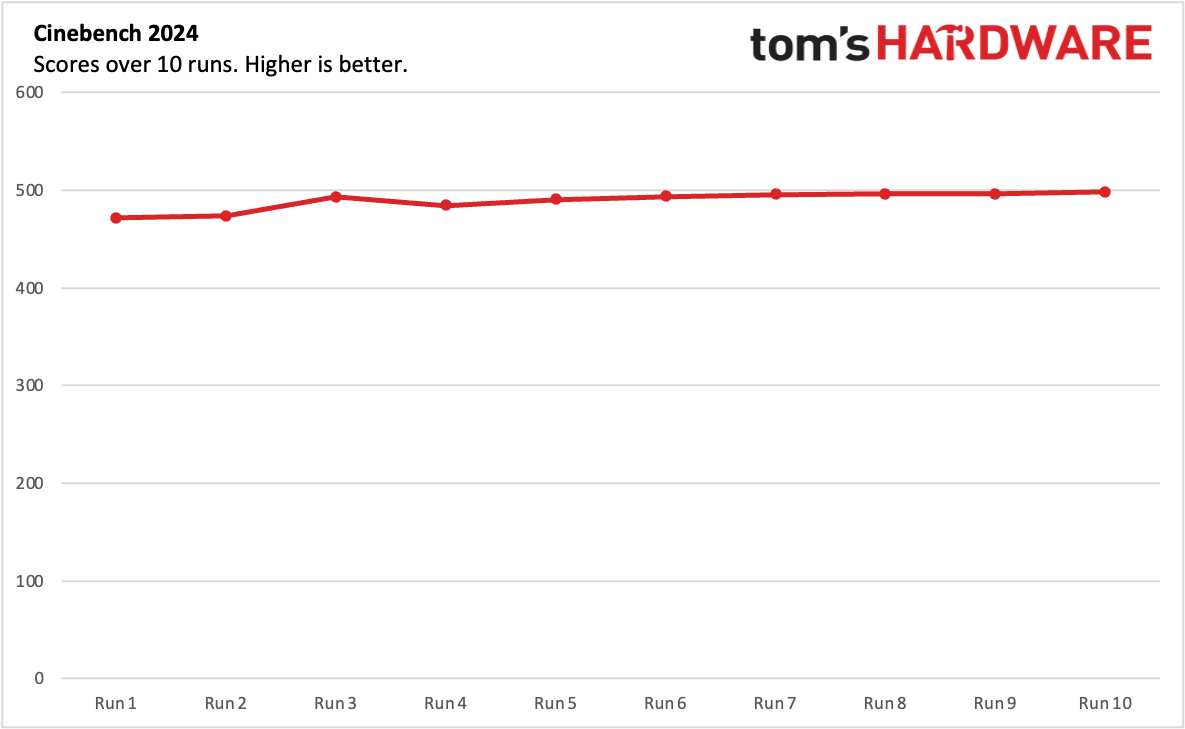

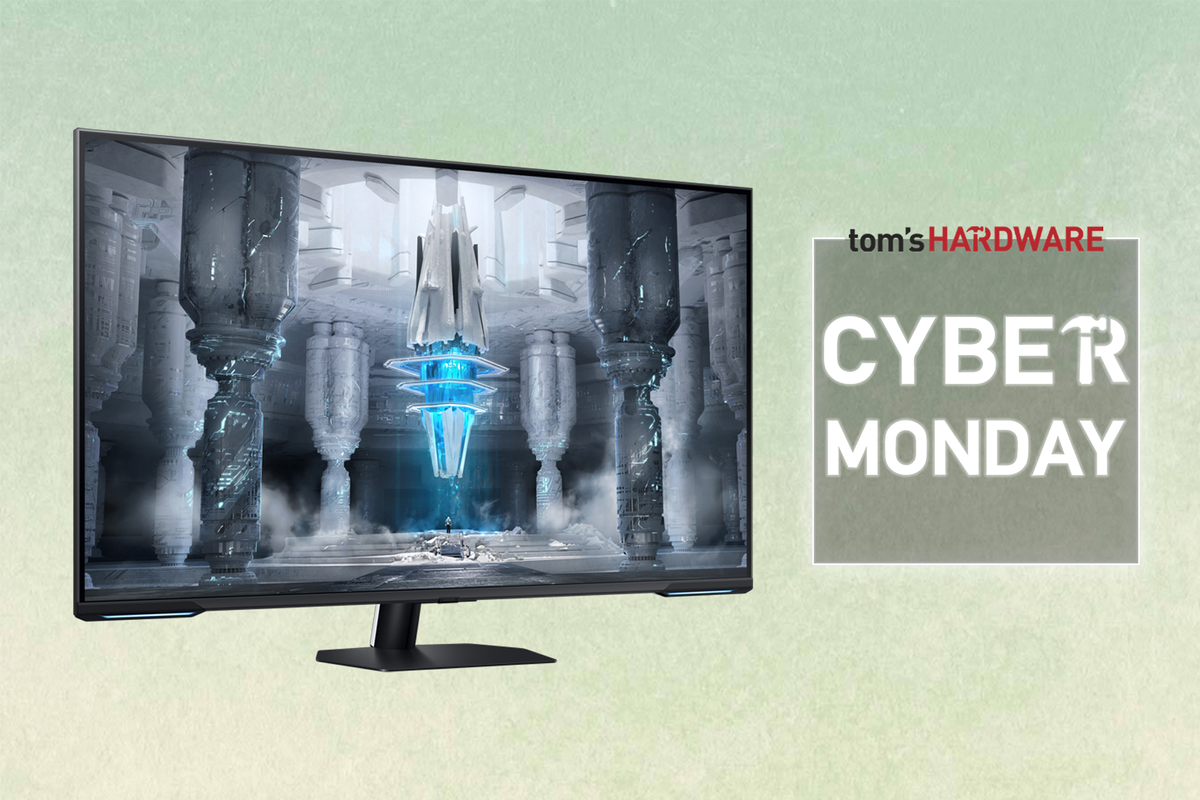
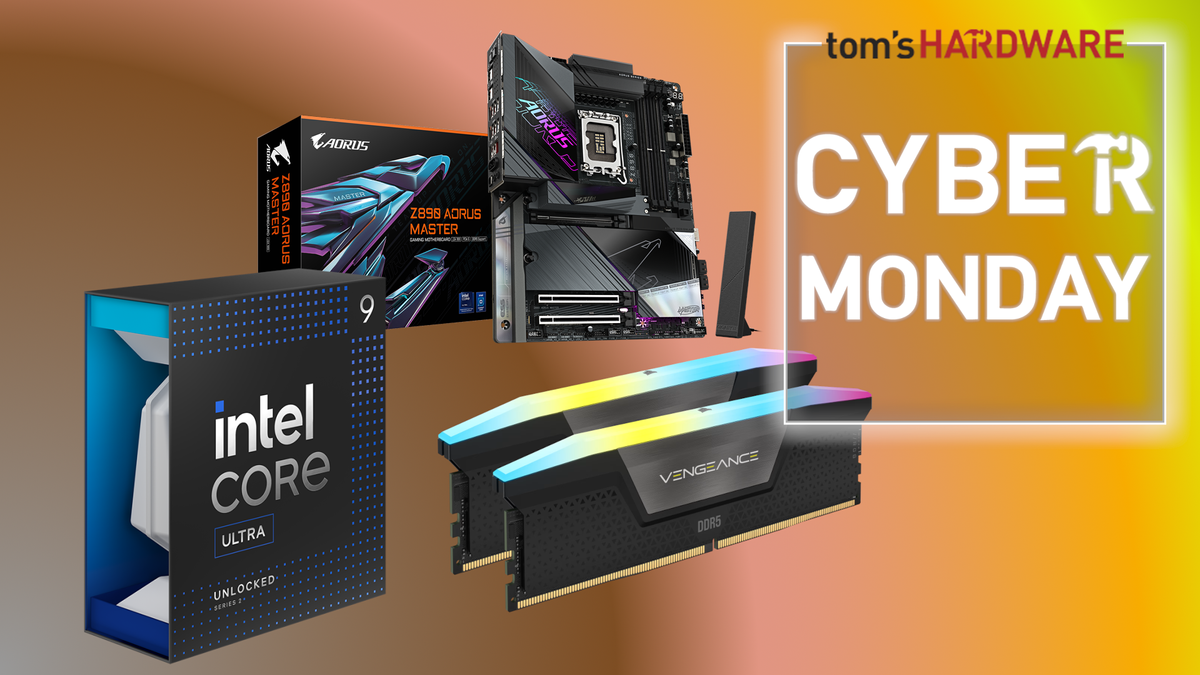




 English (US) ·
English (US) ·